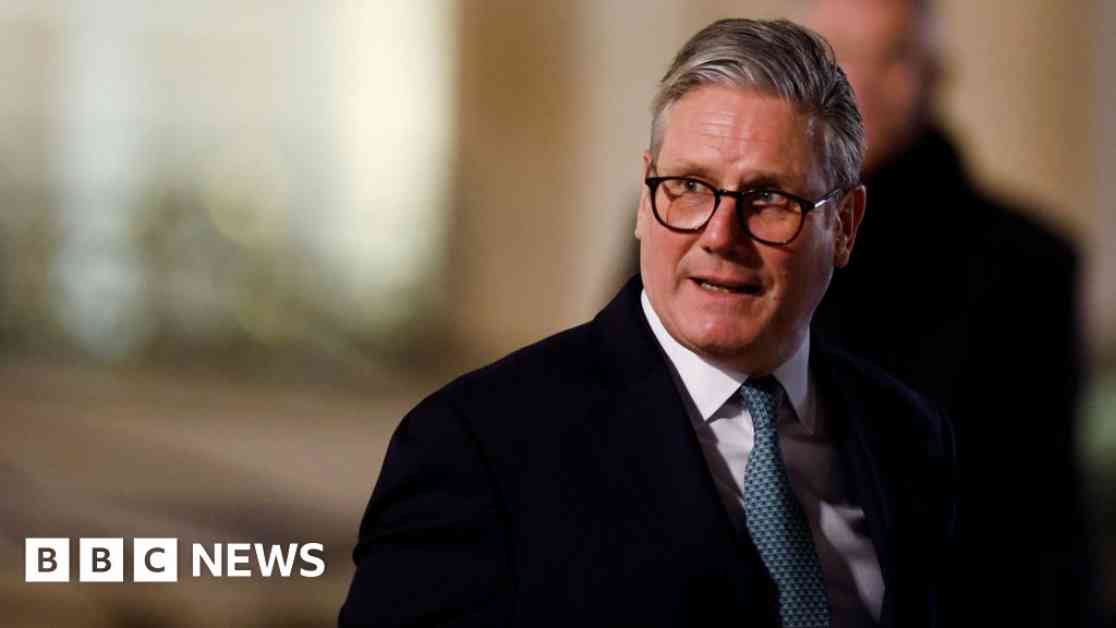Sir Keir Starmer, alongside European leaders, has expressed the need for a “US backstop” to deter Russia from further aggression towards Ukraine. The prime minister emphasized the importance of a lasting peace agreement that includes a US security guarantee during a meeting in Paris. Amidst concerns over the Trump administration’s peace talks with Russia, the urgency for a unified strategy to address the security challenge posed by Russia was reinforced.
European leaders gathered at the Élysée Palace in Paris to deliberate on the implications of the US-Russia peace talks, set to commence in Saudi Arabia. Ukrainian President Volodymyr Zelensky raised objections to the talks proceeding without Ukraine’s involvement, underscoring the need for a collaborative and inclusive approach to resolve the conflict. The potential exclusion of European nations from direct participation in the talks raised questions about the future of the region’s security.
The summit in Paris was convened in response to recent statements by US officials suggesting a shift towards European nations taking greater responsibility for their security. This sentiment was echoed by some European figures, indicating a growing consensus on the need for increased defense spending to prevent conflicts like the one in Ukraine. The evolving dynamics of transatlantic security partnerships have prompted reflections on the role of the US in European security architecture.
Challenges in Deploying Troops to Ukraine
The prospect of deploying British troops to Ukraine as part of a multinational force to monitor the border between Ukrainian-held and Russian-held territories presents significant challenges. Experts warn that a robust military presence would be essential to effectively deter Russian aggression. Malcolm Chalmers from the Royal United Services Institute emphasized the need for well-armed forces capable of confronting potential threats on the ground.
General Sir Adrian Bradshaw, a former Nato commander, highlighted the importance of a substantial force that can actively deter aggression and uphold a grand strategy for containing Russia. The logistical complexities of deploying such a force, estimated to require around 100,000 troops, underscore the magnitude of the undertaking. The commitment to enhancing defense capabilities aligns with broader efforts to fortify European security in the face of evolving geopolitical dynamics.
Lord Dannatt, former head of the British Army, emphasized the necessity of adequate resources to support a sizable military deployment. The financial implications of mobilizing troops to Ukraine underscore the broader challenges associated with meeting defense spending targets. The commitment to increasing defense spending to 2.5% of total economic output reflects a growing recognition of the need for collective security responses in the region.
Parliamentary Approval and International Cooperation
The deployment of British troops to Ukraine would require parliamentary approval, signaling a commitment to democratic oversight in matters of national security. The consultation process with Parliament underscores the importance of transparency and accountability in decision-making processes. The consensus-building efforts across political divides reflect a shared commitment to upholding national interests in a complex security environment.
International cooperation and coordination among European allies, the US, and Ukraine will be crucial in navigating the complexities of the conflict in Ukraine. The need for a unified approach to resolving the crisis underscores the interconnected nature of global security challenges. The strategic alignment between European nations and the US in addressing Russian aggression highlights the enduring importance of transatlantic partnerships in safeguarding regional stability.
The ongoing conflict in Ukraine, marked by continued hostilities and humanitarian concerns, underscores the urgency of finding a sustainable peace agreement. The impact of Russian strikes on civilian populations and critical infrastructure highlights the human toll of protracted conflicts. As discussions progress on potential troop deployments and security guarantees, the imperative of prioritizing diplomatic solutions to prevent further escalation remains paramount.
**Continued Commitment to Peace and Security**
As leaders navigate the complexities of the conflict in Ukraine, the commitment to upholding peace and security in the region remains steadfast. The evolving dynamics of transatlantic partnerships, coupled with the imperative of increased defense spending, underscore the collective efforts to address emerging security challenges. The resolve to pursue diplomatic solutions and uphold democratic values in the face of adversity reflects a shared commitment to a peaceful and stable future for Ukraine and the broader European region.













